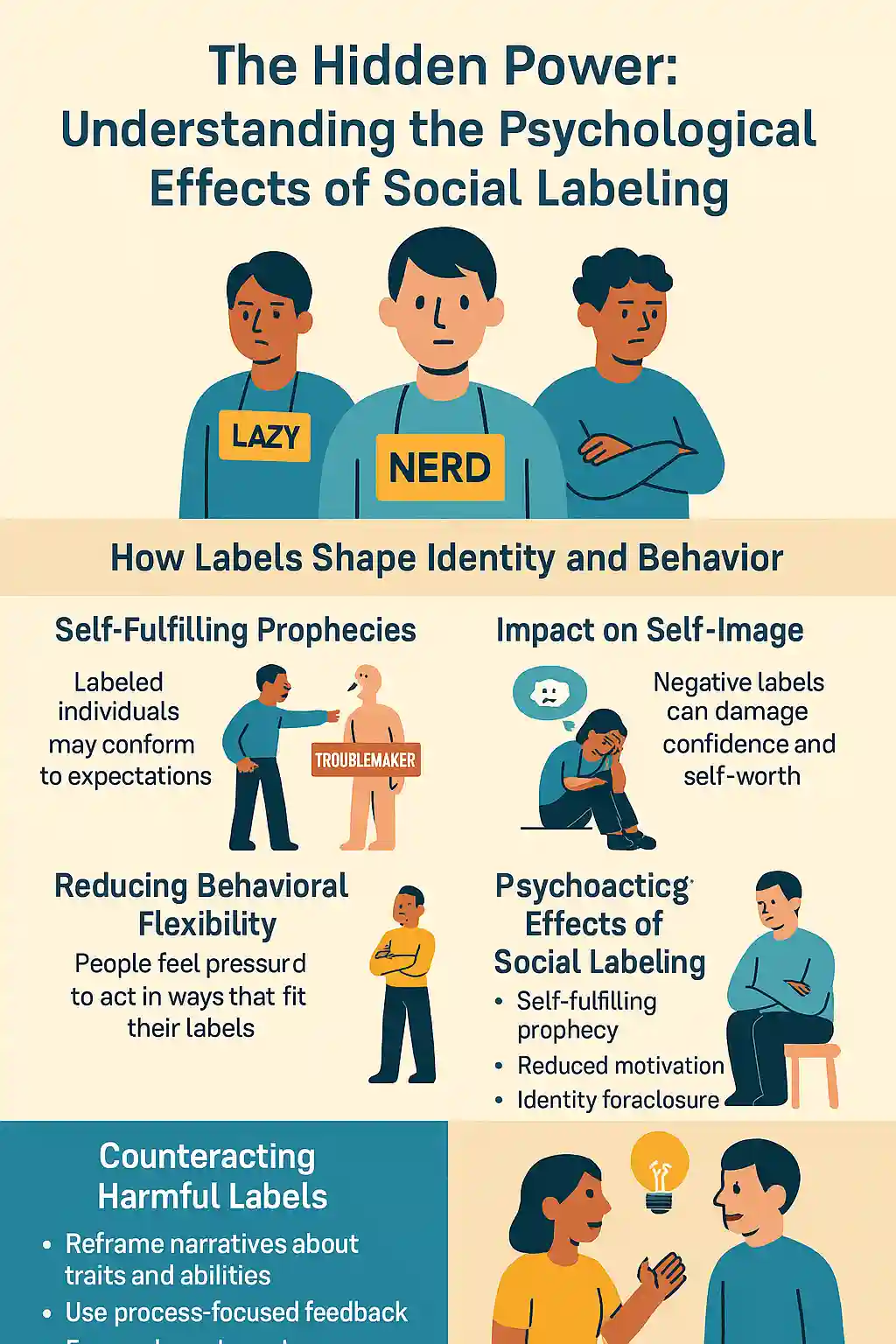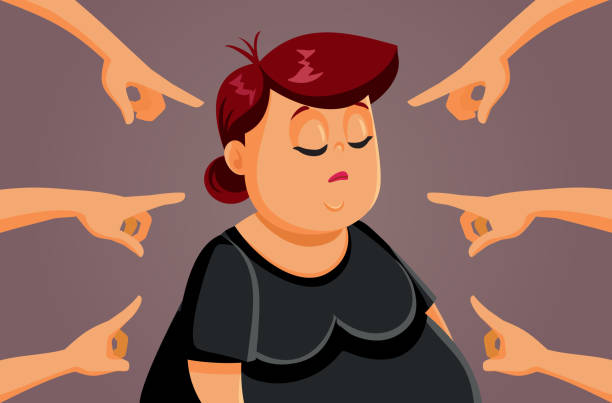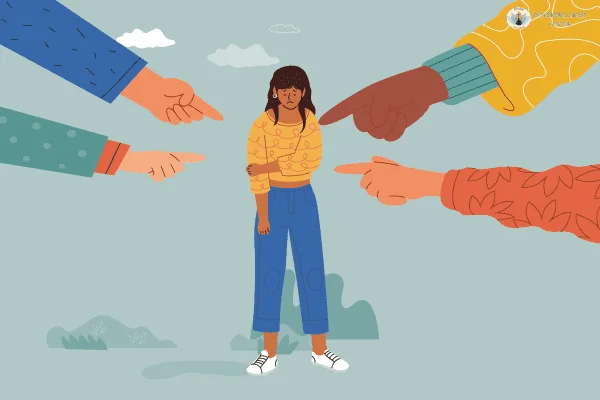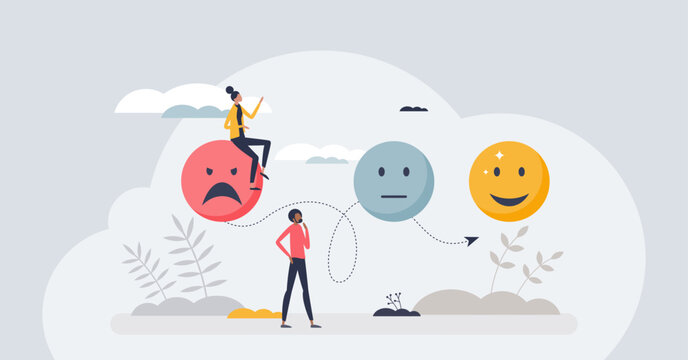
When someone calls you “lazy,” “troublemaker,” or “vulnerable,” it may seem harmless—but these labels carry weight. From classrooms to workplaces, social tags can shape how others see us and, worse, how we see ourselves. In psychology, this process is known as social labeling—a subtle yet powerful force with deep psychological effects. In this article, we explore what social labeling really means, how it works, and the psychological effects of social labeling on identity, behavior, and emotional well‑being.
What Is Social Labeling?
Social labeling refers to assigning identity-based tags—such as “smart kid,” “good girl,” or “problem child”—to ourselves and others. These labels often arise informally: a teacher praises one student as “creative,” a parent calls a sibling the “quiet one.” What seems trivial often lodges in our mind, guiding how we think, feel, and act.
Psychologists describe two types:
-
External labeling – how others tag us.
-
Internal labeling – how we accept or even self‑impose such labels over time.
Even positive labels can backfire—when labeled “gifted,” someone may freeze at first challenge out of dread of failure. And negative labels—like “lazy” or “difficult”—can erode confidence, limit opportunities, and damage mental wellness long-term.
Why Studying the Psychological Effects of Social Labeling Matters
Understanding the psychological effects of social labeling matters because labeling doesn’t just describe: it directs. Time and again, research confirms that labeled individuals often begin to conform to expectations—good or bad—creating a feedback loop that’s hard to break. This effect influences:
-
Academic and work performance
-
Social skills and peer relations
-
Self-esteem and mental health
-
Motivation and resilience
As highlighted by the American Psychological Association in studies on academic labeling, teacher expectations can strongly influence student achievement.
How Labels Shape Identity and Behavior
1. Self-Fulfilling Prophecies
When we’re labeled—and especially when people in authority endorse it—the label can become a self-fulfilling prophecy.
For example, in a real-world study, teachers who believed certain students were “late bloomers” saw those children significantly improve—simply because they treated them as more capable. Labels, in that case, unleashed positive expectations.
But negative labeling works the same way in reverse. A child branded as a “behavior problem” may feel resigned to it, act out more, or even avoid asking for help. Over time, that initial tag becomes reality—not because of the child’s ability, but because of the responses it triggers.
2. Impact on Self-Image
A steady stream of negative labeling silently corrodes one’s self-image. Even if a teenager knows deep down they’re not “stupid,” hearing “you’ll never get this” daily in math class may imprint a limiting belief: “I’m not a math person.”
That label:
-
Lowers confidence
-
Shrinks effort
-
Triggers anxiety in related situations
According to Mind UK, low self-esteem often stems from repeated negative labeling and comparison.
3. Reducing Behavioral Flexibility
Once labeled, individuals may feel locked into that identity. A student branded a “nerd” may avoid sports for fear of non-conformity, a worker tagged “difficult” may stop speaking up—even when they have valuable ideas.
This rigidity shows how the psychological effects of social labeling extend beyond feelings into behavior patterns and life choices.
Examining the Psychological Effects of Social Labeling in Childhood
Early Childhood: Seeds of Self
Young children are especially impressionable. They absorb praise, blame, or comparative labels (“You’re the smart one”) and fold them into their developing identity. Studies show kids who receive regularly positive, process-focused labeling (e.g., “You worked hard on that puzzle!”) develop stronger persistence than those praised for innate traits (“You’re so smart”).
Conversely, a child repeatedly tagged “shy” or “emotional” may internalize those traits as permanent—even if they’re situational or mild.
Adolescence: Peer Labels and Identity Formation
As kids become teens, peer labeling skyrockets in impact. Being called “weird,” “popular,” or “quiet” acquires social currency. In many cases, teens adjust behaviors—sometimes radically—to fit labels, gaining acceptance or avoiding rejection.
The psychological effects of social labeling during this formative period can ripple through adulthood, affecting social circles, dating behavior, and career paths.
Adult Life: Labels at Work and in Society
Labeling doesn’t stop after school. Adults face labels like “professional,” “managerial,” “creative,” or “difficult.” While some can boost careers, others close doors.
Performance and Opportunities
Consider performance reviews or interviews. Someone labeled “experienced” may receive more mentoring and support; someone tagged “underachieving” may be passed over, regardless of potential.
Mental Health Consequences
Negative labels can contribute to:
-
Stress and anxiety
-
Depression
-
Social isolation
According to the National Institute of Mental Health, stigma—including workplace labeling—reduces the likelihood that people will seek help or disclose struggles.

The Ripple Effects on Relationships
Labels influence not just the person labeled, but also how others treat them:
-
Teachers and managers may expect less from someone already labeled “slacker.”
-
Friends and partners might dismiss needs or contributions from someone branded “sensitive” or “independent.”
Such dynamics erode trust, damage communication, and reduce empathy. The psychological effects of social labeling thus stretch beyond the individual, reshaping entire relationship ecosystems.
Breaking Free: Counteracting Harmful Labels
Thankfully, social labeling isn’t destiny. Here are strategies to counteract negative labels and harness positive ones:
1. Reframe Narratives
Recognize that traits are not fixed. You’re not “bad at math”—you’re working on new skills.
2. Use Process-Focused Feedback
Instead of saying “you’re smart,” say “you worked really hard.” This fosters growth mindset and resilience, as described by Mindset Works.
3. Challenge Labels
Speak up when someone labels you unfairly. Try: “I’m not ‘lazy’—I’m just unclear on expectations.”
4. Diversify Identity
Engage in varied roles: sports, art, community service, reading clubs. These buffer identity against narrow labels.
5. Supportive Communities
Seek spaces where your identity isn’t reduced to a label. Peer groups, therapy, or even online support networks can help.
H2: Psychological Effects of Social Labeling
Psychologists have documented multiple psychological effects of social labeling:
-
Self‑fulfilling prophecy: Labeled individuals behave in line with expectations.
-
Reduced motivation: Negative labels dull effort and spark withdrawal.
-
Identity foreclosure: Early labels rigidly guide lifelong identity.
-
Emotional distress: Anxiety, shame, or depression often accompany harmful labels.
-
Social avoidance: Fear of reinforcing labels may lead to isolation.
Together, these effects can shape a life trajectory—without any action from the individual except internalizing the label.
Real-Life Stories: Labeling in Action
Story 1: Tim, the Quiet Genius
Tim’s teachers called him “quiet.” He assumed he wasn’t assertive enough to lead. But in college, a mentor encouraged him to speak at a conference—and realized his ideas mattered. Once that label was reframed as “introspective thinker,” Tim embraced presentations, landed a research grant, and began mentoring others to step into leadership.
Story 2: Maria Overcoming “Troublesome Teen”
Maria earned the label “troublesome teen” after being suspended. She internalized it—for years. But when a counselor emphasized her creativity in doodles, she started art class. That shift—labeling her “artistic”—helped her pivot away from acting out, channeling energy into expressive, community-building projects.
These stories show that labels can confine, but they can also be the foundation for transformation.
Practical Steps for Parents, Educators, and Managers
-
Be aware of labels: Notice when you or others use them.
-
Think before labeling: Assess if the label defines or limits someone.
-
Encourage multiple identities: Promote varied activities and roles.
-
Offer process-based praise: Focus on effort, not traits.
-
Normalize mistakes: Help people see that missteps are data, not definitions.
-
Provide positive counter-labels: Highlight strengths to override negatives.
These small steps can dramatically alter the emotional and behavioral landscape of classrooms, offices, and homes.
FAQs
Q1: What is a social label?
Q2: How do labels create self-fulfilling prophecies?
Q3: Can positive labels backfire?
Q4: How can parents avoid negative labels?
Q5: Is labeling the same as bullying?
Q6: How do I change a label’s impact?





